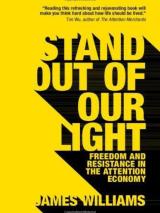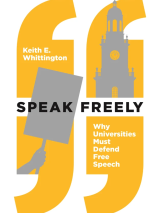The following list of references uses the "list of citations" display. It uses the default CSL style, Chicago Manual of Style.
Publications List - Most options enabled
Citations list style will exposed search, exposed filters, grouping, and thumbnail images.
S

Abstract
Former Google advertising strategist, now Oxford-trained philosopher James Williams launches a plea to society and to the tech industry to help ensure that the technology we all carry with us every day does not distract us from pursuing our true goals in life. As information becomes ever more plentiful, the resource that is becoming more scarce is our attention. In this “attention economy,” we need to recognize the fundamental impacts of our new information environment on our lives in order to take back control. Drawing on insights ranging from Diogenes to contemporary tech leaders, Williams's thoughtful and impassioned analysis is sure to provoke discussion and debate. Williams is the inaugural winner of the Nine Dots Prize, a new Prize for creative thinking that tackles contemporary social issues. This title is also available as Open Access.

Abstract
Free speech is under attack at colleges and universities today, with critics on and off campus challenging the value of open inquiry and freewheeling intellectual debate. Too often speakers are shouted down, professors are threatened, and classes are disrupted. In Speak Freely, Keith Whittington argues that universities must protect and encourage free speech because vigorous free speech is the lifeblood of the university. Without free speech, a university cannot fulfill its most basic, fundamental, and essential purposes, including fostering freedom of thought, ideological diversity, and tolerance.
Examining such hot-button issues as trigger warnings, safe spaces, hate speech, disruptive protests, speaker disinvitations, the use of social media by faculty, and academic politics, Speak Freely describes the dangers of empowering campus censors to limit speech and enforce orthodoxy. It explains why free speech and civil discourse are at the heart of the university’s mission of creating and nurturing an open and diverse community dedicated to learning. It shows why universities must make space for voices from both the left and right. And it points out how better understanding why the university lives or dies by free speech can help guide everyone―including students, faculty, administrators, and alumni―when faced with difficult challenges such as unpopular, hateful, or dangerous speech.
Timely and vitally important, Speak Freely demonstrates why universities can succeed only by fostering more free speech, more free thought―and a greater tolerance for both.
Publications List - Few options enabled
This Publications List displays citations without any exposed filters, exposed sorting, or grouping. Thumbnail images and abstracts are not displayed.
